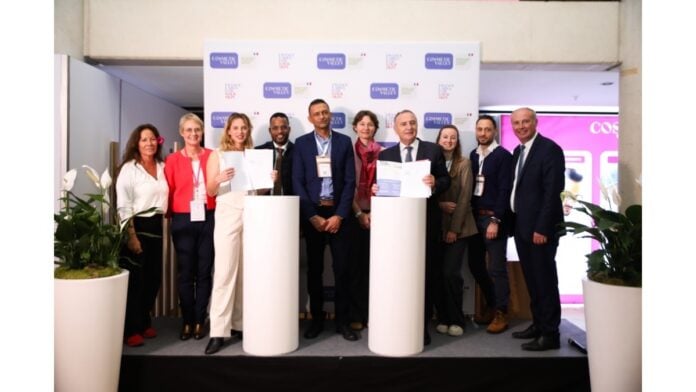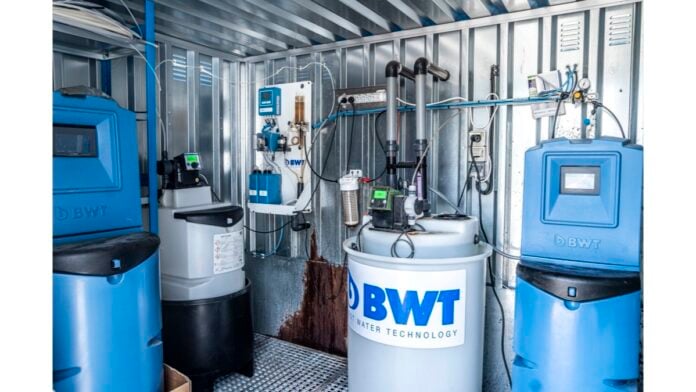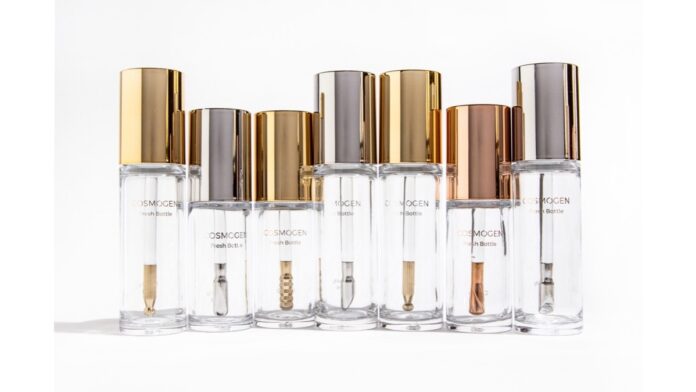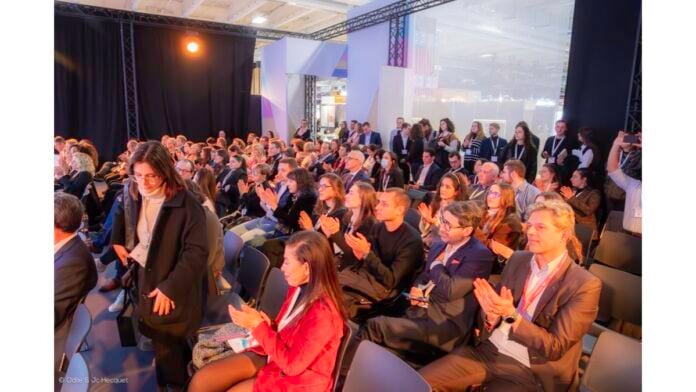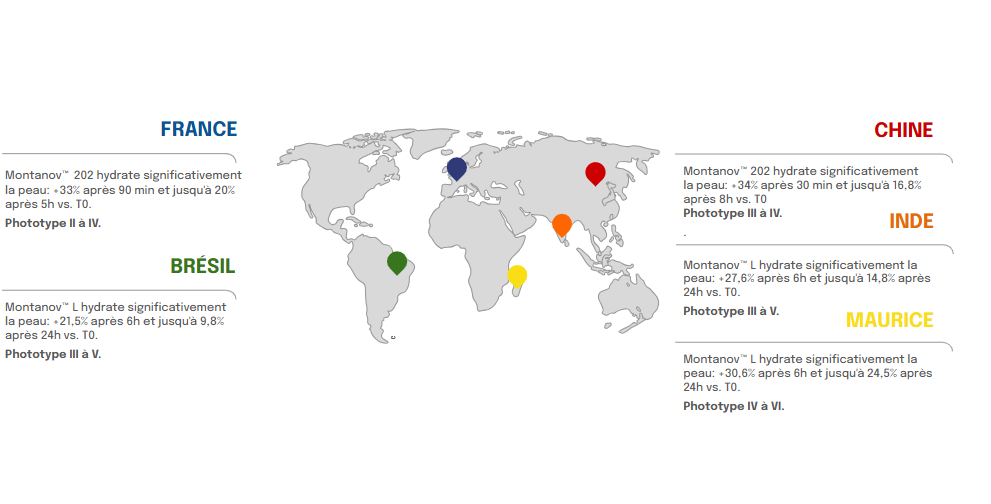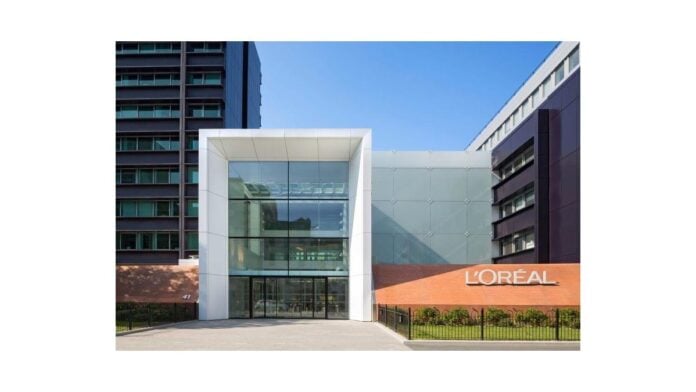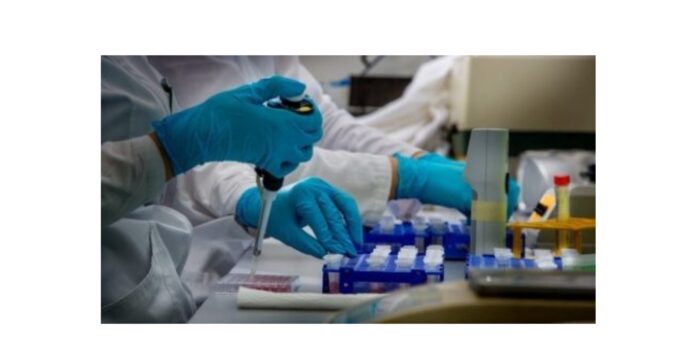Pacproject is a design agency based in Hamburg, Germany, serving a global clientele with a distinctive, global consultative approach. In this interview, Andrew Stack, designer and strategic consultant at Pacproject, highlights the crucial importance of sustainability in the modern world of packaging design. He explores the delicate balance between sustainability and design aesthetics, and discusses their recent collaboration with Actega and its innovative technology. Ecoleafan eco-responsible metallization for labels.
Could you tell us more about the creation of Pacproject, its capabilities and the customers you serve?
Certainly. Pacproject is not your typical design agency. Our scope extends from branding, design development, implementation and machine optimization. We serve a diverse clientele, from start-ups to major global corporations, in all packaging-related sectors. We work on numerous projects for a variety of companies, developing innovative solutions that may or may not come to fruition. The essence of Pacproject lies in its exceptional blend of creativity and technical expertise - a key factor that enables us to deliver not only visually appealing designs, but also highly functional solutions.
We have an in-depth understanding of the technical aspects and limitations of a designer's point of view, and our team of engineers is adept at rethinking and challenging conventional methods to develop new solutions. We stand between brand owners and R&D. Our services also include strategic consultation on printing, finishing, form, new technologies and developments, innovation and implementation, and sustainable alternatives. Even before our customers approach us, we are often already aware of potential options, be they new suppliers, materials or technologies.
How does your agency approach working with customers to achieve their packaging design goals, addressing key challenges such as product differentiation, luxury appearance and sustainability?
Every customer has a unique set of requirements and objectives, depending on their product and corporate vision. However, sustainability always remains a high priority. The importance of eco-friendly packaging continues to grow, making it an integral factor in every design process.
Balancing brand identity with technological and product constraints is often the biggest hurdle companies face. The art lies in knowing when and where to push the boundaries and when to compromise. Substituting materials and finishes is a major challenge. One of the main challenges for our customers often involves questions such as: "What alternative materials or methods can I use?"
We see ourselves as constant explorers of new technologies. This includes investment in a molded pulp prototyping machine, 3D printing and rapid prototyping. A significant part of our focus is maintaining the latest information and diving deeper into industry developments. In our branch, we have a dedicated room filled with market samples from around the world, showcasing different packaging designs, finishing effects and material simulations. Our archive covers a wide range of packaging materials, from different substrates to finishes and paperboard. We support and document all packaging-related elements, and have the capacity to create prototypes in-house. This enables us to deliver innovative and sustainable solutions to our customers.
Does the quest for sustainable packaging conflict with the need for striking, high-impact design concepts, and how does this influence the desired quality or aesthetics of the design?**
Designing packaging that is both attractive and durable has become common practice. Sustainability is no longer a luxury, but a necessity for brands that want to remain competitive. Brands are continually looking for designs with strong shelf appeal, as consumers now consider sustainability a crucial factor in their purchasing decisions. This change has significantly transformed the requirements of brand owners. So, while aiming for sustainability, brands are also prioritizing visually appealing packaging that combines environmental responsibility with aesthetic impact to create a powerful first impression.
How do you balance the demands of your customers? Are there solutions available to help you achieve your customers' objectives?
As part of our commitment to providing our customers with the best solutions, we are always on the lookout for trends in the packaging industry. As part of our core business, we advise customers on various sustainable options and their effects on final packaging designs. It's all about finding the optimum solution, while recognizing that there will always be compromises.
Our consultancy uses a two-pronged approach. Working closely with our customers and partners through interactive discussions and workshops from start to finish enables us to understand and meet all their needs. We think together to define their contributions, processes and objectives, and evaluate the best solutions, making recommendations and offering inspiration. Our in-house teams develop concepts, create prototypes and carry out rigorous testing to ensure that we effectively meet everyone's needs. Alternatively, we organize workshops, either leading them directly or moderating them and working alongside their departments, helping them to develop their own solutions.
Could you share your experiences with the partnership between Ecoleaf, Actega's eco-metallization technology and Pacproject?
We had an incredible experience with Ecoleaf, Actega's eco-metallization technology.
Simply put, Ecoleaf is reinventing the metallization process by using "on-demand" metallization, which minimizes waste and optimizes resources while delivering a highly reflective and impactful metallic effect. This technology places metal flakes precisely where they are needed, eliminating the need for PET carrier films and foil reels, significantly reducing waste and plastic use, as well as the environmental impact associated with the production and disposal of these plastics.
Our visit to the Ecoleaf laboratory in Lehrte, Germany, was revealing, enabling us to see first-hand how this revolutionary system works. The Ecoleaf metallization unit is at the heart of the process, installed on a printing press at the beginning, middle or end of the printing process - or even optionally applied off-line - for maximum flexibility. The print result is created by printing a trigger image in a varnish-like material (rather than the glue typically used with foils) that is applied to the substrate by flexographic, screen or inkjet printing. Before the trigger image passes through the metallization unit, it is UV-cured. In the metallization unit, a very thin layer of metallic pigments is applied to a donor roller and then transferred, very precisely, onto the trigger image. After depositing the metallic layer on the trigger image, we found that no additional drying or curing steps were required. This not only makes Ecoleaf extremely environmentally friendly, but also comparatively cost-effective and fast compared with conventional technologies.
What began as a partnership to promote their innovative technology turned into a journey towards sustainability. We were fascinated by the advances in Ecoleaf technology and decided to leverage this technology to promote sustainable alternatives. Our aim was to demonstrate the sustainability benefits of the technology for brand owners, using simplified ACL calculations to demonstrate substantial savings over traditional methods. To take this initiative a step further, we have launched a project in which Actega is providing a free simplified ACL tailored to brand owners' specific applications, as well as a sample label using Ecoleaf technology.
Our venture with Actega for Ecoleaf technology is incredibly exciting, and we look forward to helping raise awareness and implement this remarkable technology.
How has the Ecoleaf project influenced your approach to sustainable packaging design?
Our discovery of Ecoleaf was a real "wow" moment. We pushed the boundaries with bold designs to test the technology's capabilities, and the results were outstanding.
Put simply, knowing that you can set aside your concerns about sustainability when integrating Ecoleaf embellishments, you're free to unleash endless creativity. Ecoleaf offers incredible flexibility, enabling the creation of both flat layers and embossed embellishments. The ability to overprint with any color also enables a veritable palette of metallic effects. Brand owners can now adapt and match their existing colors with metallization, creating a playground for designers to experiment with different color ranges. What's more, Ecoleaf excels at producing precise detail, making it perfect for printing fine decorative details and tactile (raised) images. This enhances the quality and premium perception of finished products.
The technology is simple to set up and integrates seamlessly with various existing printing methods such as flexo, screen and inkjet. This convenience enables rapid changes in artwork, ideal for limited editions and last-minute differentiation or personalization.
In my opinion, Ecoleaf offers a revolutionary solution that takes metallization and packaging design to new heights.
What importance do you attach to new technologies like Ecoleaf for the future of packaging design?
Innovative new technologies like Ecoleaf are crucial to the future of packaging design, enabling companies to balance sustainability with aesthetic appeal. In the quest for true sustainability, improving the recyclability of labels and packaging is as vital as reducing carbon emissions. Ecoleaf technology shows how luxury and environmental stewardship can coexist, offering a competitive edge by meeting consumer demand for eco-friendly options while maintaining visual appeal. This innovation helps brands make a strong first impression and aligns with their sustainability objectives, demonstrating that ecological preservation and economic benefits can indeed go hand in hand.
Finally, what trends do you foresee in packaging design, and what are your aspirations in this constantly evolving field?**.
Packaging design is increasingly scrutinized for its environmental impact. As policies and regulations tighten and consumer awareness rises, a significant trend is the shift to green consumption. Europe, in particular, is focusing on recyclability, circular design and green credits. Transparency, trust and the assessment of ecological impacts in packaging design are becoming increasingly critical. Consumers are increasingly aware of greenwashing, making sustainability a crucial factor in their purchasing decisions.
Equally important is the trend towards premiumization. Packaging design must now balance ecological considerations with a premium appearance. Successfully combining these elements is essential to appeal to today's demanding consumers.
Another emerging trend is the return to authenticity and heritage. People are increasingly looking to the past for inspiration, seeking products that evoke a sense of security and safety. Packaging designs are adopting a more artisanal look, reflecting this desire for authentic, timeless qualities.
Photo: Andrew Stack, designer and strategic consultant at Pacproject.




